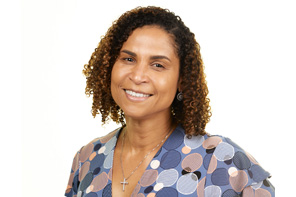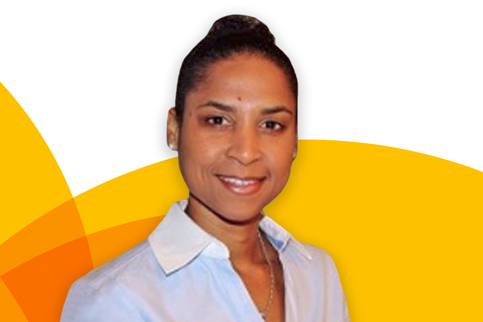Q: Dr. Bell, it’s great to take this moment with you and talk about an issue that’s very important to us both. Diversity is such a ubiquitous term now, but it means something different to everybody. What does diversity mean to you?
Maureen Bell, MD: For my entire medical career—starting in my first medical school classes and continuing through residency, practice, and now leadership—I have usually been the only Black woman in the room. For me, diversity means having the opportunity to blend in rather than stand out. That way, I can focus on doing my job rather than on the ways I’m different.
If you look at medical school admissions over the last five to 10 years, there’s been an increase in the number of female applicants. But in terms of racial minorities—specifically, Black students—that number seems to be dwindling. In 2019, fewer Black males applied to medical school than in the 1970s. So, after 40 years of so-called progress, we’re actually worse off than when we started.
And our patients notice. My ED serves a large African American population. On almost every shift, at least one patient tells me, “I can’t believe you’re my doctor!” It’s still rare for Black patients to have physicians who look like them. That’s another way I look at diversity. Our healthcare workforce should reflect the patients and communities we serve.
Q: How can the healthcare industry in general foster more diversity across different areas of the profession?
MB: I hear many conversations along the lines of “How can we get Black and Latino youth interested in medicine?” What we don’t acknowledge are all the signals these students receive—both explicit and implicit—that make them feel unwelcome in our profession.
Some personal examples: In one of my medical school admissions interviews, someone asked, “Have you considered nursing?” Another interviewer questioned the significance of my 3.9 GPA because I had attended a historically Black college.
Many of our kids hear this type of messaging starting in elementary school. And speaking from experience, that’s a lot to shoulder as a young person. When someone discourages you or slams a door in your face, it’s hard to pick yourself back up and keep fighting.
That’s why mentorship is so important. Minority physician mentors can normalize the struggle these students go through. We can let them know that, yes, the road ahead will be tough. But when someone tells you no, let that be your motivation to work even harder.
Truthfully, we could use more mentors. Yes, the life of a physician is demanding, and our patients must come first. But it’s also important for us to look at the big picture. Think about those communities that don’t have a single minority physician. What about those students? Who can they look to and say, “Okay, they did it, that means I can too.”
Q: What can health system and clinical leadership do to help create more diversity within their organizations and better match the needs of the communities they serve?
MB: We need to make it our organizational mission to develop and encourage our diverse clinicians. Imagine being at a medical staff meeting. Your CEO asks, “Who wants to be on our board?” and maybe 18 hands go up. If you’re the only minority physician in the room, you might not volunteer, even if you’re highly qualified. It might take an invitation or a nudge forward to spark your confidence.
This is one reason I’m so proud to be a part of Vituity. When I first joined the partnership, I didn’t feel like I had anything unique to offer. I was content to “stay in my lane” and focus on patients. But ultimately, I couldn’t ignore the chorus of voices around me saying, “Listen, we think you’re talented. You should aim higher.”
Those early mentors really shaped the way I lead today. When I promoted an assistant medical director recently, I told him, “Sure, you don’t have a ton of experience. But I know you have the ability. And it means we’re going to invest some time in teaching you and training you.” It’s all about creating safe pathways for people who are interested to get involved.
Q: What advice would you have for prospective Vituity providers, specifically related to opportunities to be part of a diverse healthcare organization?
MB: If you’re passionate about healthcare justice and making a difference in the world, we are your tribe. On an individual level, we have a strong tradition of mentorship. Our former CEO, Dr. Wes Curry, really used his platform to mentor and develop the generation of diverse executives who serve today. Because of him, inclusion is woven into the fabric of our culture, and we’re looking for individuals who want to extend that hand up to others.
Also, there is the Vituity Cares Foundation, which has been a labor of love for us and many others. This nonprofit will allow us to extend our mission of ending health disparities into the communities we serve. There will be many opportunities to get involved—from education to mentoring to improving access and clinical care. If your readers feel called to empower and uplift our most vulnerable patients, we’d love to have you join us.
Q: I’m thrilled we launched the Vituity Cares Foundation this year and thank you for being such a big part of that. I’m also proud that you were recently honored with this year’s Dr. Wes Curry Award at ACEP. What does this acknowledgment mean to you?
MB: Wes Curry is a giant, as you well know. He’s done so much in his career, not only for diverse patients and professionals but also for emergency medicine. He’s also been a strong voice within the National Medical Association, which promotes the interests of Black physicians and patients. So, to receive an award with his name on it is truly a great honor.
Q: Dr. Bell, it’s been a pleasure. Any final thoughts before we wrap up?
MB: Mu, I’m just glad we’re taking the time to talk about this, because there’s so much momentum building behind healthcare justice. 2020 has been a challenging year for everyone but especially for minority communities. And if there’s a silver lining, it’s that we’re finally having meaningful conversations about healthcare disparities. The next step is to put this awareness into action. So, I hope our conversation today inspires people to go out and make a difference.























